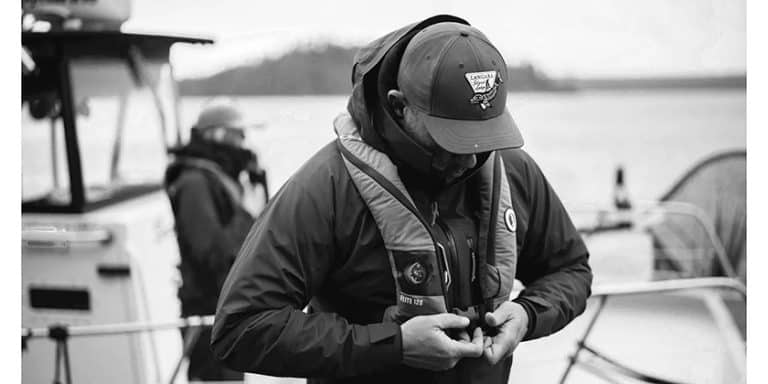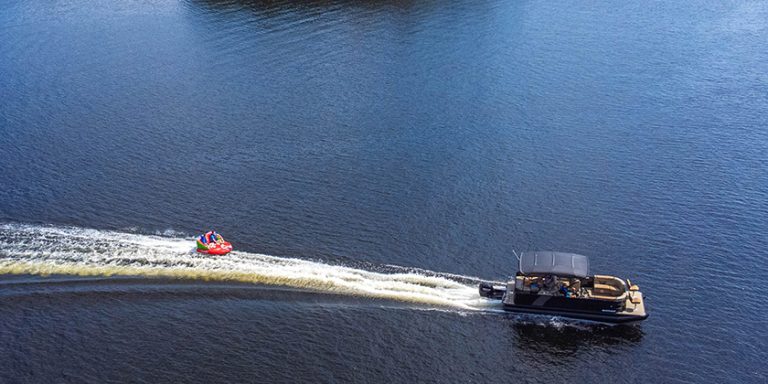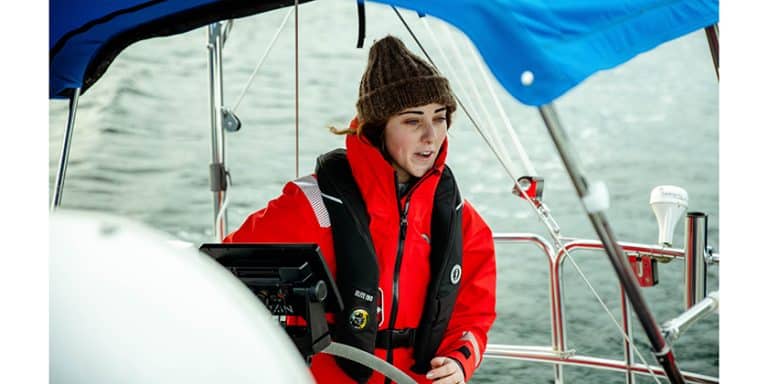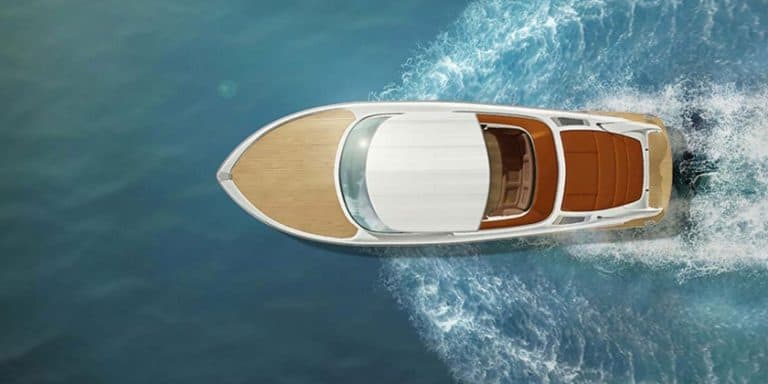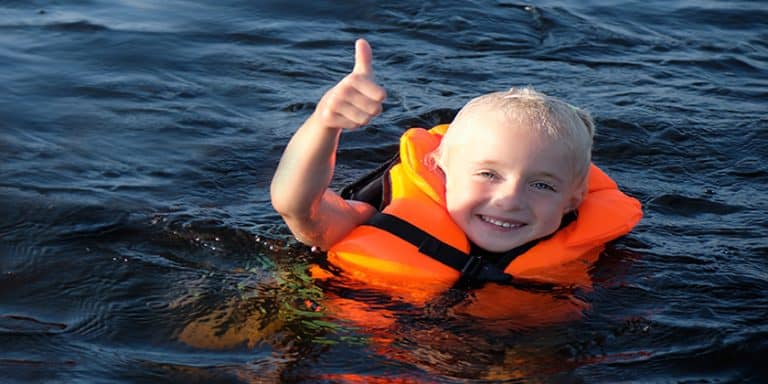Good Samaritans — Rules and Risks
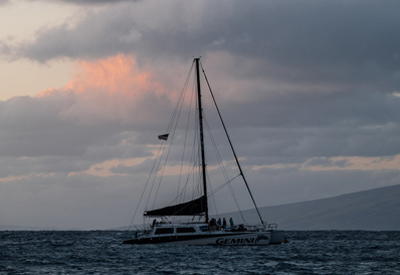
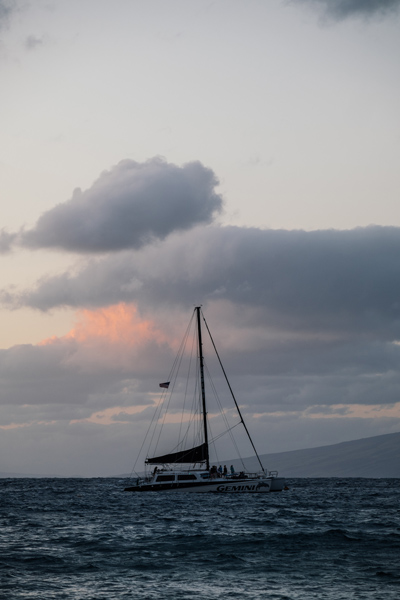 By Joan Wenner, J.D.
By Joan Wenner, J.D.
Sailboat under cloudy sky by Bill Cox-Unsplash
Have you ever needed on-the-water assistance due to a mechanical breakdown, running aground, taking on water (perhaps from striking a submerged or floating object), having a mishap with another vessel, or have a medical emergency and the authorities are not near, but another mariner answers your mayday or perhaps observes your predicament. Another boater is in the vicinity, but will, or should, that person offer to help perhaps at his peril? What if you were that pleasure craft operator?
“Law of the Sea”
Is a vessel’s master obligated by law to provide aid to another vessel in danger with a possible penalty imposed for failure to do so? Known to sea captains as basically the “Law of the Sea” it set more of a model of moral behavior than actual legal responsibility. This centuries old maritime tradition remains very much alive although today, it is supported by law requiring assistance only. if such can be done safely without serious damage to each of the vessels or individuals aboard – in other words without worsening the situation, possibly drastically.
‘Good Samaritans’ are defined as those that render voluntary aid, without compensation, to a person or vessel in distress and with the operator’s permission. For recreational boaters there is basically a ‘standard of care’ meaning reasonable care and avoiding grossly negligent or reckless conduct.
Canadian Regulations
While technically for a pleasure boater to be required to render aid it is necessary to have found the distressed boater at sea and in danger of being lost so most boaters would not be obligated to attempt assistance – but it is a violation for failing to stop at the scene of an accident. Officials recommend calling an alert with the disabled boat’s position, and the ability of the captain or guest onboard to operate the boat.
Bureau de al securite’ nautique (www.tc.gc.ca/boatingsafety)
Pleasure craft are regulated by the Canada Shipping Act (Consolidated Statutes of Canada) and additional applicable regulations under the responsibility of the Minister of Transport. A vessel operator’s responsibilities and obligations are provided through that legislation at Sections 131(1) and 132. For newer boaters: note this law with its regulations governs pleasure craft including among its coverage “Collision Regulations.”
“Every qualified person who is the master of a vessel in any waters, on receiving a signal from any source that a person or vessel, is in distress, shall proceed with all speed to render assistance and shall, if possible, inform the persons in distress or the sender of the signal.”
“The master of a vessel in Canadian waters and every qualified person who is the master of a vessel in any waters shall render assistance to every person who is found at sea and in danger of being lost.” This Canadian legislated obligation on mariners is also required under (“SOLAS”) the Safety of Life at Sea Convention. The obligation is released when another vessel or vessels confirm responding or when advised that assistance is no longer needed.
‘Good Samaritan’ provisions are also typically created by provincial and territorial governments for the purposes of protecting citizens while providing medical services such as first aid,” according to the Office of Boating Safety for the Prairie and Northern Region.
Shield from Liability
There is a measure of immunity from liability for those who provide emergency assistance. For examples: provinces of Alberta (the Emergency Medical Aid Act); British Columbia (Good Samaritan Act, RSBC 1996 Chapter 172 Section 1, www.bclaws.com; and Ontario (Good Samaritan Act).
Affirmative duties to provide emergency assistance to another whose life is in danger, or otherwise incapacitated either personally or calling for aid, by giving necessary or immediate aid, unless involving a danger to himself or has another valid reason, notes the province of Quebec.
A person volunteering assistance must exercise skill and knowledge of which he or she, or guests or crew, is capable. It is critically important in any ‘Good Samaritan’ situation to know your craft’s limitations and handling as well as your own capabilities, or lack thereof.
Towing scenario
What about throwing a tow rope to a disabled craft in the absence of an accident or collision. For towing for instance, special care is required since towlines can get tangled around prop shafts, another boat could hit the line at night plus there can often be conditions of reduced visibility in bad weather, at night or in areas shared with heavy commercial traffic. One helpful boater stopped to tow a boat with engine problems about a half mile back to shore in a light chop. Other boats were speeding by, a few in very close proximity not even slowing down. This ended successfully, but liability was a concern if something had gone wrong.
(In a following sea one expert suggests rigging a drogue to the tow to keep it from riding up onto your stern if the boats get out of sync and which also can reduce the tendency of the tow to yaw.)
Boat Insurance issues
Unfortunately in today’s world many boaters are concerned with liability, litigation and insurance issues should damage be sustained to either or both boats and/or the parties involved. This is an important point. Normally the aiding craft’s insurer would pay for damage but note that some insurers advise they may tag on a ‘loss surcharge’ to the cost of the policy. If you haven’t had a review of your marine insurance in some time, now is the time.
Conclusionary notes
Again, it is true that generally boaters are afforded some measure of protection but with a caveat so long as actions are reasonable and prudent, but sometimes courts must decide in assessing damages. As one judge remarked in an oft quoted case, “A rescue attempt must be considered in the light of the circumstance that faced the rescuers when they acted and not with the wisdom of an ‘armchair admiral’ after the fact.”
A case comes to mind where liability did attach. A new and inexperienced operator of a large powerboat encountered a grounded slightly smaller craft. Both parties agreed on a pull. In this instance it did not go well with significant damage to both boats. Think hull integrity and running engines in shallow water. The helper here was not capable of rendering prudent aid and lost in a later court case for damages the owner of the assisted craft filed. The case was silent on why the grounded boat’s towing insurance provider was unavailable. (Towing insurance is highly recommended no matter your boating locale as most groundings and the like are better left to professional towing services.)
Today we feel we’re in ‘communications central’ with all our hailing devices, but we also know there are times when a fellow mariner is nearby or even observes the mishap. If you take on the task, act reasonably and don’t put your boat, yourself or your guests at risk especially if you are a newer boater. Proceed with great caution and you’re likely to steer clear of the law and the courtroom.
• – –
POSSIBLE SIDEBAR
The Canadian Power and Sail Squadrons not only provide free safety equipment checks but also provide a wealth of information on recent amendments to Small Vessel and traditional boater regulations, flares and other visual distress signal carriage requirements (and their expiration), VHF Radio Courses to call for help, and at the national headquarters website at http://www.cps-ecp.ca a link to the popular “Just Ask John” and his You Tube Boating Tips at www.youtube.com/CPSECP
For the 2018 amendments (including SUPs) you can also view: www.gazette.gc.ca/rp-pr-p2/2018/2018-05-30/html/sor-dorsl02-eng,html
• Joan Wenner, J.D. is a longtime and widely published boating safety writer with a law degree. Comments or inquiries welcome to: joan_writer@yahoo.com


